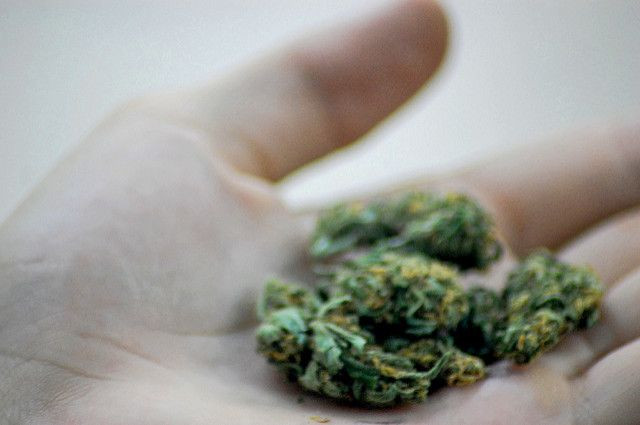Is Marijuana Addictive? NIH Says Cannabis Use Disorder Affects Nearly 6 Million People

In light of marijuana’s evolving legal status, scientists at the National Institutes of Health have begun to advocate for public education regarding the drug’s potential dangers. Marijuana use is not harmless, their new study finds: In the past year, nearly six million people (2.5 percent of adults) experienced marijuana use disorder — considered a type of drug dependence or abuse.
Symptoms include cravings, developing a tolerance, and experiencing withdrawal symptoms, including inability to sleep, nervousness, anger, or depression, within a week of stopping heavy use. According to the NIH scientists, since many people use alcohol and marijuana together, more research is also needed to understand the effects of combined use.
The researchers interviewed more than 36,000 American adults about how they use alcohol and drugs and also discussed related psychiatric conditions. They discovered that marijuana use disorder is common, with 6.3 percent of adults acquiring a dependence on the drug at some point in their lives. Mostly, it goes untreated.
It's about twice as common among men than women, and younger people are much more likely to experience the disorder than people over age 45, the data showed.
Cannabis dependence is strongly and consistently linked with mental health disorders, the researchers discovered, and other substance use disorders. Sufferers experience considerable mental disability, and these symptoms may continue even after they stop using.
Only about 7 to 14 percent of people receive any marijuana-specific treatment.
Why It's So Difficult to Stop
In their conclusion, the study authors say it's a matter of urgency to identify effective treatments for this particular drug use disorder, since addiction causes changes in the brain.
Marijuana disrupts the way brain cells send, receive, and process information, explains the National Institute on Drug Abuse (NIDA). Essentially, the drug overstimulates the brain's reward system, producing euphoric effects. With repeated use, the brain adapts to drug-induced surges of dopamine by producing less dopamine itself or by reducing the number of dopamine receptors in the reward circuit. Soon, a person no longer enjoys life's usual pleasure and becomes trapped in a cycle of using drugs to make up for the lost fun.
Addiction is a chronic disease, NIDA explains, one that is not cured by simply stopping drug use for a few days. Most people require long-term or repeated care to completely end their drug use. Along with staying drug-free, successful treatment helps people become productive and recover their lives.
Source: Hasin DS, Kerridge BT, Saha TD, et al. Prevalence and Correlates of DSM-5 Cannabis Use Disorder, 2012-2013: Findings from the National Epidemiologic Survey on Alcohol and Related Conditions–III. American Journal of Psychiatry. 2016.



























